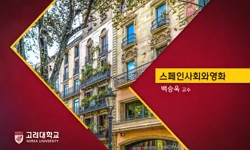In this article I aim to re-evaluate in a feministic view the desire for the Mother some critics consistently found in the poetry of William Wordsworth. Referring to the Lacanian account of it, I mainly discuss the characteristic way that the desire f...
http://chineseinput.net/에서 pinyin(병음)방식으로 중국어를 변환할 수 있습니다.
변환된 중국어를 복사하여 사용하시면 됩니다.
- 中文 을 입력하시려면 zhongwen을 입력하시고 space를누르시면됩니다.
- 北京 을 입력하시려면 beijing을 입력하시고 space를 누르시면 됩니다.

워즈워스와 어머니에 대한 욕망 - 주체성의 전략으로 읽기 = William Wordsworth and the Desire for the Mother as a Strategy of Subjectivity
한글로보기https://www.riss.kr/link?id=A30066050
- 저자
- 발행기관
- 학술지명
- 권호사항
-
발행연도
2002
-
작성언어
-
- 주제어
-
KDC
800
-
등재정보
KCI등재
-
자료형태
학술저널
- 발행기관 URL
-
수록면
105-136(32쪽)
- 제공처
- 소장기관
-
0
상세조회 -
0
다운로드
부가정보
다국어 초록 (Multilingual Abstract)
In this article I aim to re-evaluate in a feministic view the desire for the Mother some critics consistently found in the poetry of William Wordsworth. Referring to the Lacanian account of it, I mainly discuss the characteristic way that the desire for the Mother, the primodial Other, works as a strategy by which a subject constitutes its sense of wholeness. What is unique with Wordsworth is that the poet overcomes the Castration Complex by imagining the Mother`s obedience to the Law of the Father. Thus, allotting to the Mother some of the symbolic power as a signifier of love, I try to argue against the dogmatic reading of woman in Romanticism just as victimized. Reading such poems as The Thorn and The Mad Mother, I first explain that the Mother is desired only as a medium of love through which the poet finds his name as a subject. Denying the common interpretation of those poems that the Mother is very seductive with her Phallic power, I emphasize her unwillingness to transgress the Law of the Father. Focusing on the `stolen boat episode` in The Prelude, next, I trace the psychological process in which, resolving the oedipal crisis, the poet grows up to the point where he can meet the law of subjectivity and the desire for the Mother at the same time, thus magnifying himself as a whole self. The poet realizes this impossible project in the misrecognition that he is always in the bosom of the Mother who works in both ways of castration and healing love. Finally I demonstrate in Tintern Abbey how the poet aesthetically succeeds in maintaining the tension of being a subject, but in perfect union with the Mother simultaneously. Thus I conclude this reading with three feministic interpretations. First, a subject`s mastery over the other is unavoidable by the nature of subjectivity, so that female subjectivity would be either impossible or similarly victimizing. Second, woman is rather split in dual identities of denied body and idealized soul of love. Third, woman in the poetry of Wordsworth is not an object to be appropriated, but is allotted relative autonomy because the poet`s strategy of subjectivity is to sustain subjectivity in lack itself ever to be filled up by something greater than himself.
동일학술지(권/호) 다른 논문
-
- 한국영미문학페미니즘학회
- 권택영 ( Teck Young Kwon )
- 2002
- KCI등재
-
- 한국영미문학페미니즘학회
- 김문기 ( Moon Ki Kim )
- 2002
- KCI등재
-
가정소설에서 나타난 이상적 여성상의 형성과정 - 여성작가들의 양가적 태도를 중심으로
- 한국영미문학페미니즘학회
- 김진아 ( Jin A Kim )
- 2002
- KCI등재
-
영국 낭만주의 시에 있어서 자아와 자연과의 관계에 내포된 성 (性)의 정치학 - 워즈워스의 시를 중심으로
- 한국영미문학페미니즘학회
- 김희선 ( Hee Sun Kim )
- 2002
- KCI등재




 KCI
KCI KISS
KISS







